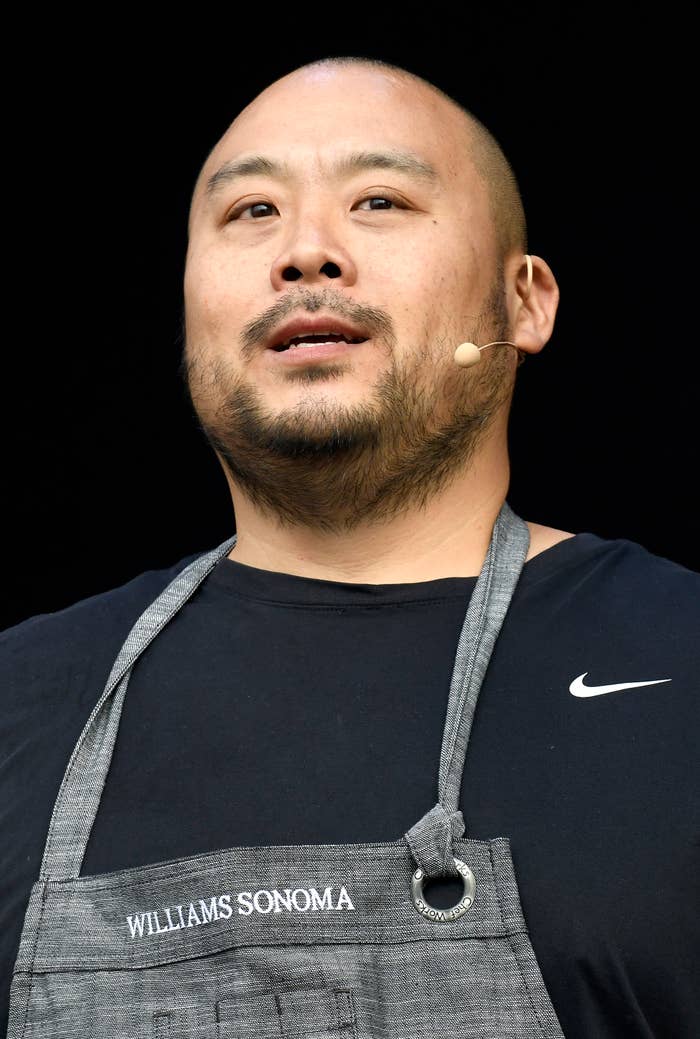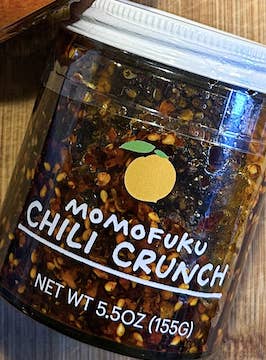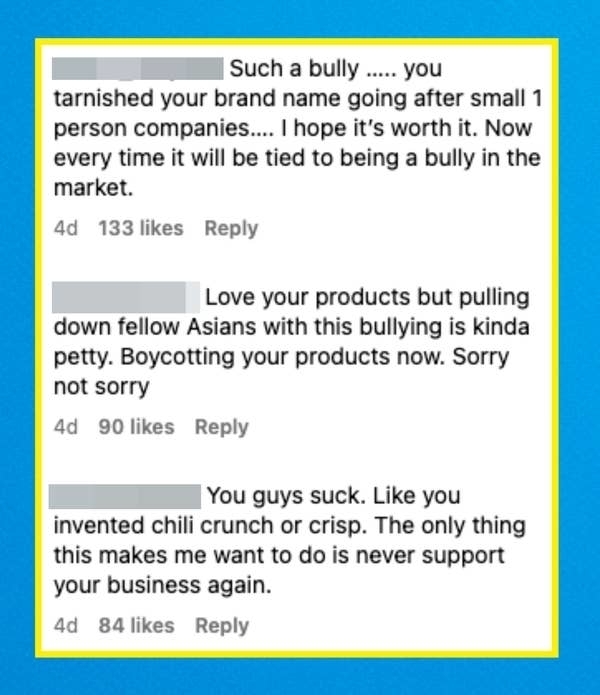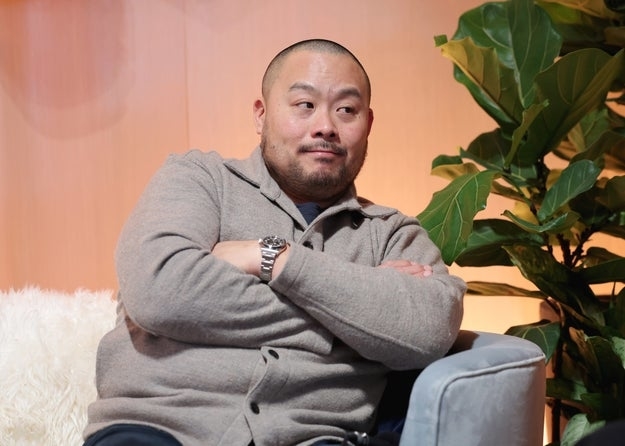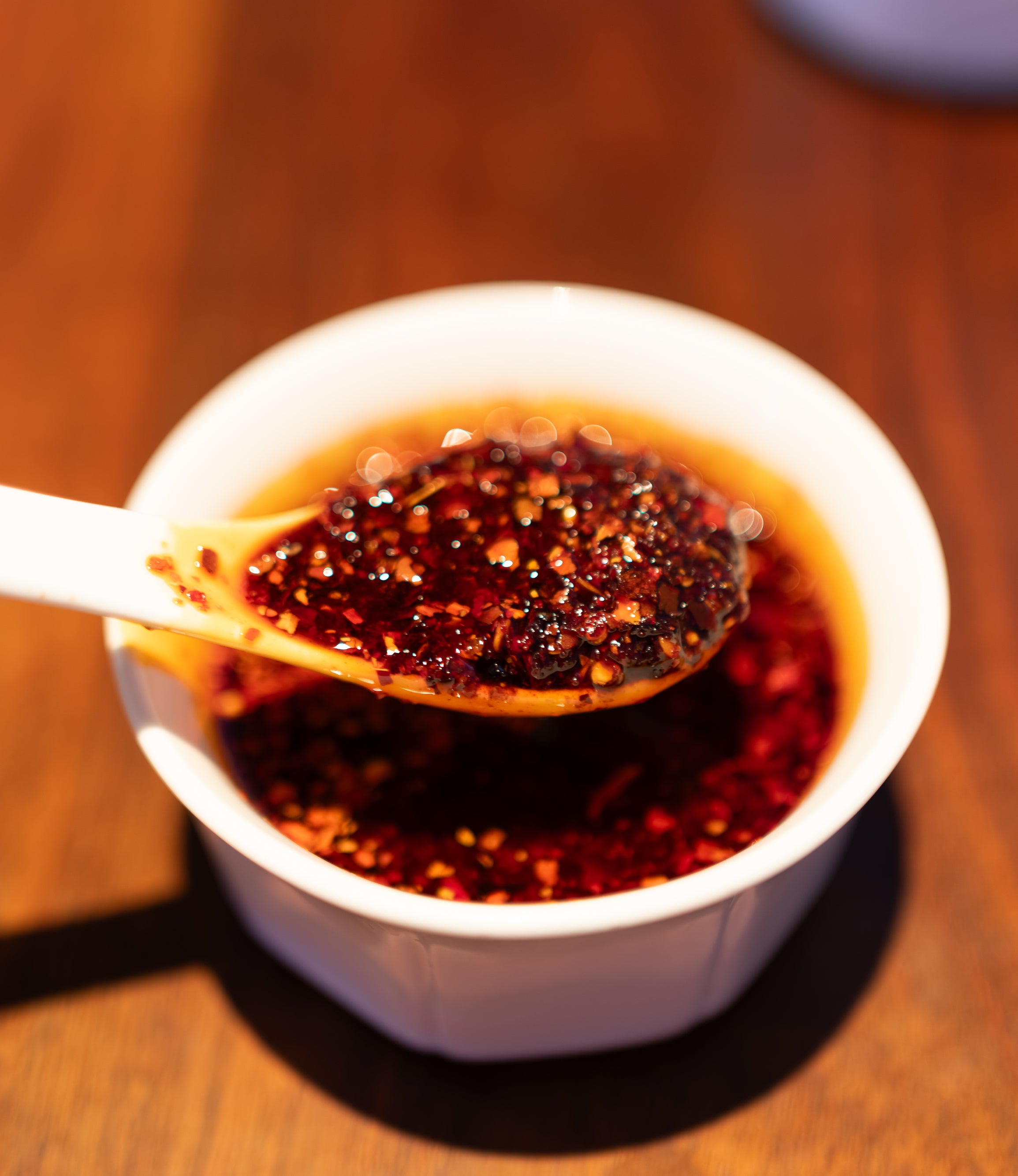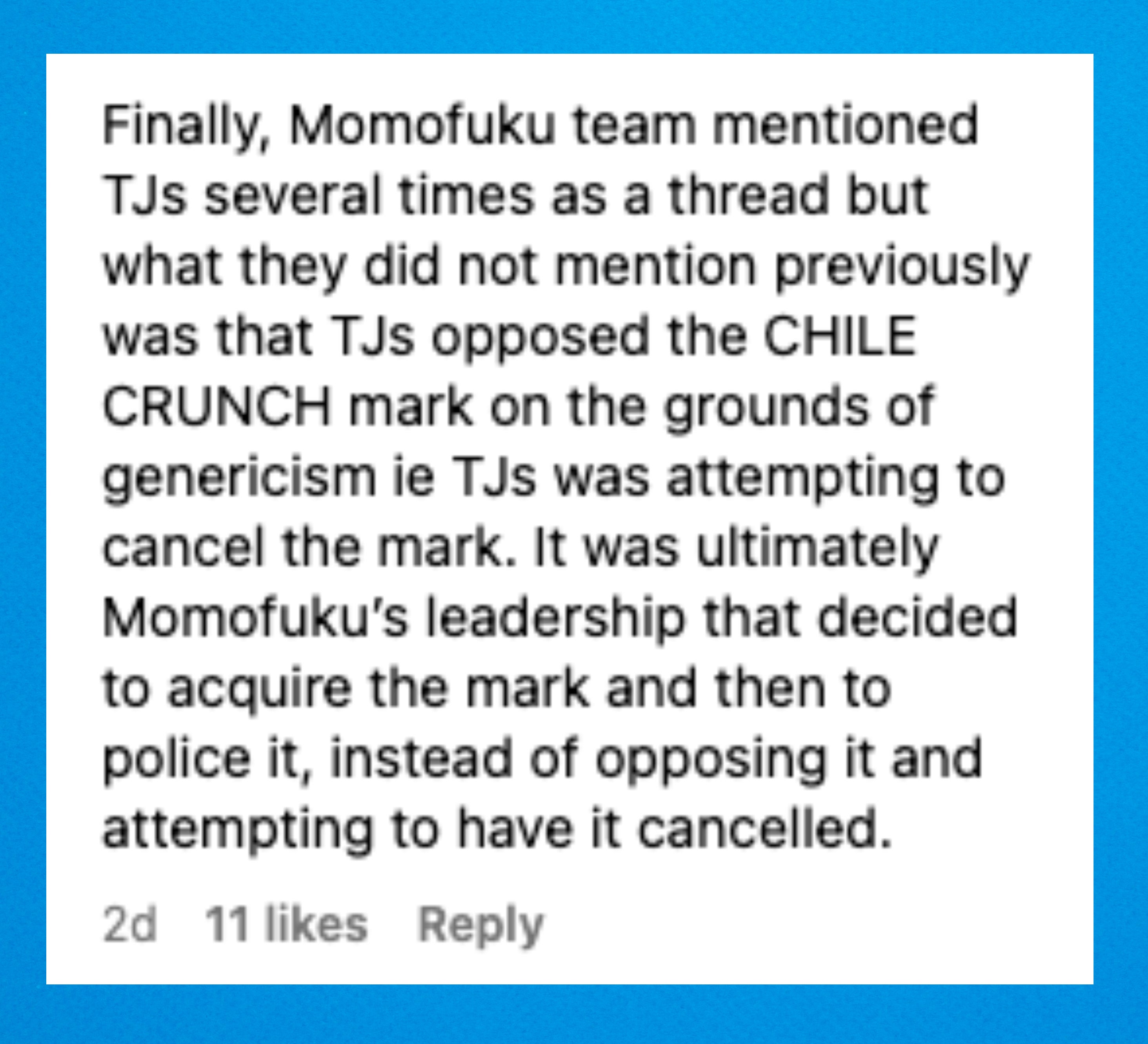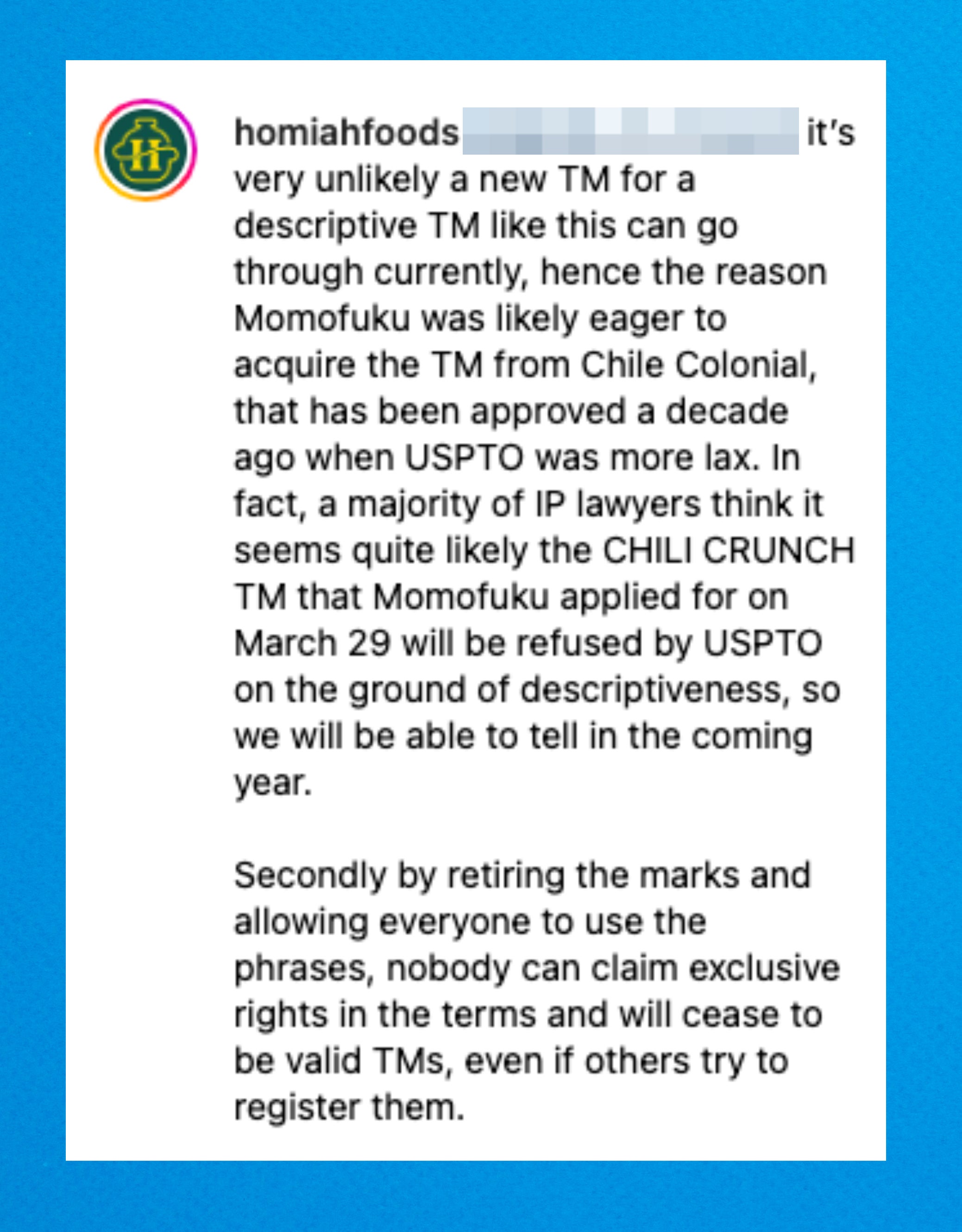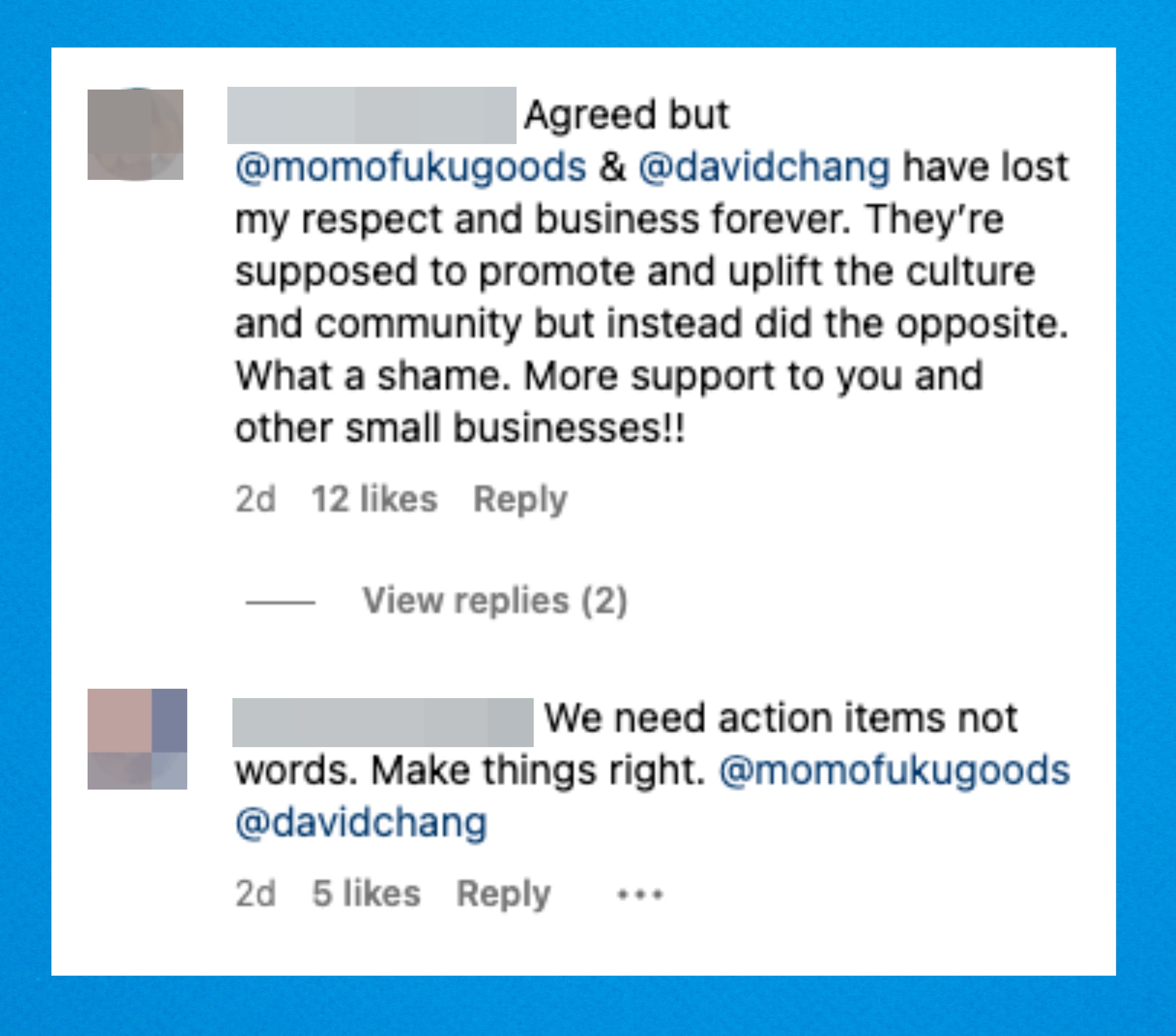The apology comes after Momofuku ’s trademark try bring down the caller in a major praseodymium crisis .
Last week, celebrity chef David Chang and his company Momofuku were at the center of a very viral (and very heated)PR disputewhen it was reported that the brand sent cease-and-desist letters to several AAPI-owned condiment brands.
The controversial move marked the beginning of Momofuku’s attempt to trademark “chili crunch,” a spicy and savory chili oil-based condiment that’s become increasingly popular in the United States in recent years. Although the condiment is closely tied to chilicrisp(which has origins in China), many brands, including Chang’s, opt for the chilicrunchverbiage on product packaging — includingHomiahandMìLà, two of the brands on the receiving end of these cease-and-desist orders.
Here’s the quickest recap if you’re not up to speed on last week’s events: After the trademark war went viral, it didn’t take long for backlash to set in. Across social media, commenters called out Chang and Momofuku for “bullying” other condiment brands (several of which were one- or two-person operations) into ceasing the use of “chili crunch” to describe their products.
For the full scoop on what happened, you can read ourposton the situation from last week — but no matter which way you slice it, Momofuku’s aspirational trademark endeavor landed the company in a major PR crisis.
On Friday, Chang’s very popular podcastThe Dave Chang Showreleased a special20-minute episodein which Chang was joined by the company’s CEO, Marguerite Zabar Mariscal, to discuss the whole chili crunch debacle.
It opens with Chang admitting that the episode is “not your normal podcast” and will instead “address the debate that’s been playing out over the past few days over social media.”
Most of the apology is handled in the first few minutes. Chang explains that when Momofuku first put their chili crunch product on the market in 2020, they intentionally chosecrunchto avoid overlap with chilicrisps. “What we’re learning this week, and in a painful way learning, is that the terms crunch and crisp are essentially the same thing in Mandarin,” he says. “In holding the term crunch as a trademark, Momofuku can be seen as trying to own a piece of Chinese culture and heritage, which is exactly the opposite of what we wanted to achieve.”
He states that he wants to accomplish three things: “I want to apologize to everyone in the AAPI community who’s been hurt or feels like I’ve marginalized them…that’s the last thing, literally the last thing I wanted to happen,” he says. He also mentions his desire to go through the “timeline of how we got here in 2024” and commits to explaining how the company will rectify the situation moving forward.
These are the main points that Chang and Mariscal hit over the course of those 20 minutes.
And remember : Momofuku does n’t yet own the " chili crunch " earmark , as they only filed their diligence with the USPTO in March of this year . Theydo , however , own the " chile crush " ( with an " e " ) mark as a result of a 2023 legal settlement with the company Chile Colonial — which becomes necessary circumstance a little by and by on .
1. As previously mentioned, Momofuku’s decision to call their product chilicrunchwas because their product wouldn’t be “authentically Chinese” likeLao Gan Ma’s, the first (and still one of the most popular) purveyors of chili crisp in the US. Instead, Chang wanted to create a new chili sauce by combining chili crisp with other known chili sauces, like salsa macha, salsa seca, and Momofuku’s Ssäm sauce. He says that they landed on “crunch” because he “likes alliteration” — and the sauce itself was “crunchy.”
“Had I known that chili crunch was a tautology, basically the same as chilicrisp, we would’ve never named it chili crunch. I would’ve come up with something else,” he explains.
2. Mariscal claims that the cease-and-desists sent out over the “past year” were to both small companiesandcompanies “larger than Momofuku” — seemingly speaking to the swirling narrative that they cherry-picked small brands without the financial means to enter a complicated legal battle. Later in the episode, Chang admits that the other companies pulling in more revenue and doing bigger business than Momofuku “sorta pissed [him] off.”
3. Chang says that his instinct was to “get rid of the [trademark]” when he learned of the backlash last week, hoping to deem the term “generic” instead. In other words, ensuring thatnocompany could ever trademark the term. But he then claims that genericizing “chile crunch” would be impossible with current trademark law — and that doing so would just put the term up for grabs for a company larger than them (he explicitly references Trader Joe’s) to trademark and take ownership of.
4. According to both Chang and Mariscal, they’re investigating options for moving forward, but they’ve decided they’ll be “doing nothing” with their trademark. “We’re not going to enforce the trademark, we’re not going to police the trademark, and by doing so, it’s possible it becomes a generic term and nobody can own it,” Chang adds.
Mariscal states that the risk of another larger company coming along and taking the mark from them as a resultant role of Momofukunotdefending the mark is " a risk of exposure [ they ’re ] uncoerced to take . "
However , itstill is n’t clear if they have formal plans to withdraw their current USPTO practical program for the " chili crunch " print .
5. Last but very much not least: After Momofuku’s chili crunch first launched,theyactually received a cease-and-desist from Chile Colonial, a small company that started selling a Mexican-inspired “chile crunch” (with an “e”) in 2008. CEO Marguerite Mariscal explains that instead of changing Momofuku’s chili crunch to another name, they “worked with [the business owner] to actually purchase the mark so [they] could continue using the chili crunch name that [they’d] come up with back in 2020.” In turn, they gave Chile Colonial a “perpetual license” to continue to use their newly transferred chile crunch mark.
We got in touch with Chile Colonial owner Susie Hojel, who confirmed this information in a statement to BuzzFeed. Hojel also touched on the Trader Joe’s of it all, claiming that she sent a cease-and-desist to the company in 2020, which caused them to change their popular “chili onion crunch” to “crunchy chili onion.” In turn, this gave Chile Colonial the incontestable right to the trademark, which led Momofuku to purchase the “chile crunch” trademark from Hojel for an undisclosed amount.
Hojel say BuzzFeed that " Momofuku now have the trademark , and in [ her ] judgment , has the right to protect it . "
The comment is just one element of alarger statementthat Homiah posted on Instagram in the wake of Chang’s podcast episode, and it presents an entirely different understanding of the trademarking process as a whole. “I disagree with Momofuku’s position that it needs to continue to own these marks,” they said, claiming that if Momofuku officially retired their trademarks, “nobody [could] claim exclusive rights to these terms, even if others try to register them as trademarks.”
“It’s very unlikely that a new trademark for a descriptive trademark like this can go through currently, hence the reason Momofuku was likely eager to acquire the trademark from Chile Colonial that was approved a decade ago when USPTO was more lax,” they said in a comment. “In fact, a majority of IP lawyers think it seems quite likely the chili crunch trademark that Momofuku applied for on March 29 will be refused by USPTO on the ground of descriptiveness.”
This discrepancy between Homiah and Momofuku speaks to just how subjective the world of trademarks and intellectual property is. An interview Bon Appétitconductedwith IP lawyer Hamutal Lieberman last week touched on many of the subjectivities at play with this trademark application, from the “e” vs. “i” argument to why the chili crisp brand Fly By Jing lost out on a similar application for “Sichuan chili crisp” in 2019. As a result, it’s evident that no two lawyers and no two individuals at the USPTO office have identical perspectives. Trademark law is notoriously complicated — which makes disputes such as this one difficult to objectively weigh in on from the outside.
We reached out to Momofuku to ask why they’ve decided to move forward bynotdefending their trademark instead of withdrawing their application for “chili crunch” and dropping the “chile crunch” mark — since, according to Chang’s podcast, the first option will almost certainly yield similar results to the latter in time. A spokesperson declined to comment, but we’ll let you know if there are any further updates.
